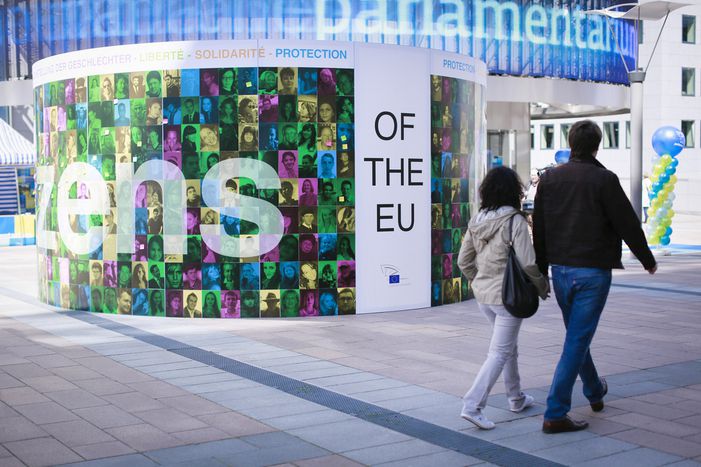
The Growing “European Family” From the Dream to the Reality
Published on
In the past Europe was the most controversial continent and nowadays is one of the most peaceful and powerful regions, that still searches to find its unification and completeness. Since 1950 with the European Coal and Steel Community, created to preserve the peace, the EU started to build it’s “pyramid of soft power”, supported by the United States of America, which needed stable Europe.
In 1957 with the creation of the ‘Common market’ or EEC, the EU stabilizes the grounds of this colourful, (because of the variety of countries); small, (as the continent is one of smallest), but still unfinished “pyramid”. The ingredients used for the construction are: diversity united by common ideals, and future aspirations for a peaceful and greater future for all countries, which decide to join this growing “family”. The question is “How can they resist not joining?” At a present time the EU consists of 27 member states, their citizens, needs and problems. Who knows how many other countries will join, as the question “Where does Europe end?” remains open. To fulfill Jean Monnet’s dream - to unite people not countries, the EU has to conclude soon the building of its “pyramid” and start to solidify the construction, creating the European Identity of its citizens.
Bulgaria and Romania are the newest members of the enlarged EU, and are the “vandals” of the system. They are lost since 1989 in the struggle and search of their democracies and own identities. Corruption, excessive immigration, constant frightening of the intellectuals (who are hard to find these days) and not sufficient cultural and social fundaments, are the result for today’s instability and beyond control governors “personal” politics. The EU for the common people in these countries, is seen as the long expected righteous “judge”, who will finally bring order and punish the ones who now remain unpunished, hiding in the mafia layers, as the two social layers which are defined in these countries are the mafia, or the corrupted ones and all the rest. The EU can help, and the first aid a society receives is to be accepted as a member of the “family”, but the real change must come from the inside.
A start to change the mentality is what should have happened before the acceptance of Bulgaria and Romania in the EU. Slovenia is the contrast, the example of a prosperous, fully integrated new member state, which takes part of the EMS and shares the European values and policies. How this member state did it and the newest ones cannot? Slovenia follows the rules and does not think to be smarter or to be able to escape from the vigilant “eye” of the EU. Romania and Bulgaria do think that they are untouchable as the poorest ones with mafia and system of laws protection. From the first date of their accession, instead to search for help, for a real change, they started and continue to increase the profits in somebody’s pockets, without being caught, as it was happening during the Communism. This will not last long, the EU has its limits, as society does. Everything is question of mentality. Bulgarian people need to have a little bit of the Western European mentality, where the citizen comes first, because he is the “engine”, he is the force that makes the “pyramid” stay stable. The Balcanical “vandalism”, inculturality, passivity towards human rights and the last decade’s phenomenon of “chalga” led and will lead nowhere.
Awakening from the past mistakes is the reality that the EU and its newest member states need. “Green” thinking and technologies are the future of the old, unfinished European “pyramid”. The dream for the most competitive economy in the world and united European social communities remains where it was. With the new generations it might become true, if their parents and relatives awaken today and start the hard rebuilding of themselves, and their respective societies, towards one European identity. The ideals enclosed in the heart of the EU, must not remain only empty words, meaningful for a minority, they should be shouted loudly and believed deeply, that is how the changes in the founder countries and in the newcomers will be fully achieved.
Kremina Kirilova
Picture: Umby, 2006



